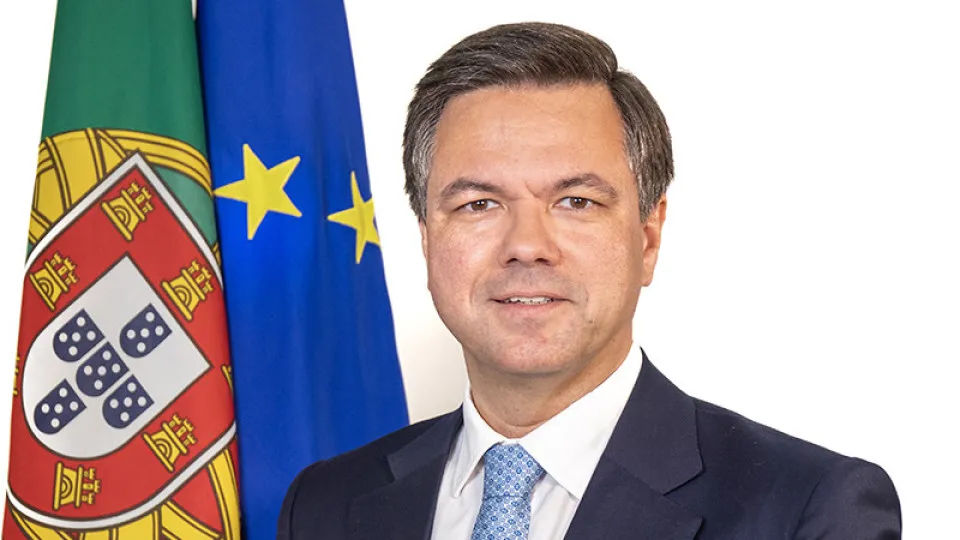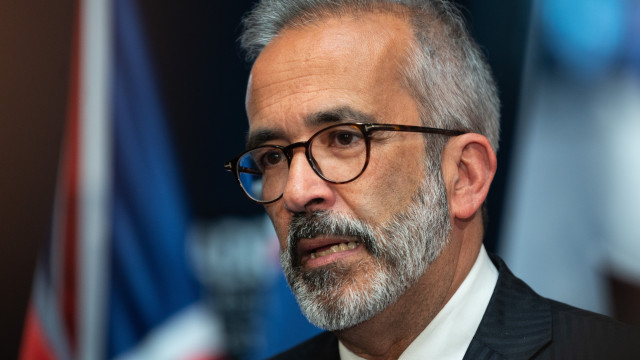
Gonçalo Matias was the featured speaker today at the dinner-conference of PSD’s Summer University, a training initiative for young professionals running until Sunday in Castelo de Vide (Portalegre). He emphasized that the main aim of the state’s reform is to “make life easier for people and companies.”
“It is the State stepping aside for people and companies, allowing them to work,” he said, noting that many bureaucratic acts “exist only because they involve a fee.”
After reviewing the measures taken by this new Ministry in the first month of the XXV Government—including the creation of the role of State CTO (Chief Technology Officer)—he announced upcoming initiatives, such as the establishment of a “one-stop shop for businesses,” distinct from the existing entrepreneur’s desk.
“This is a new measure of centralization. Having a single point of contact for entrepreneurs within public administration to convey a unified voice and face, which will then channel to all other services,” he explained.
The former president of the Francisco Manuel dos Santos Foundation shared figures illustrating the impact of bureaucracy in this area.
“Studies suggest it takes 356 hours to open a company, plus an additional 391 hours in bureaucratic obligations, totaling approximately 750 hours in the first year,” he stated, adding that those wishing to start a company in Portugal “start with a four-month delay” compared to countries like Poland and Slovakia.
Gonçalo Matias announced that the Government also intends to review industrial, environmental, and urban licensing, with urban planning “coming soon.”
“With critical aspects like shortening deadlines and establishing deadline certainty. Today, when someone asks how long it will take to license this construction, nobody knows,” he noted.
The minister indicated that in many cases, licensing will shift to prior communications, and if deadlines are exceeded, the principle of tacit approval will apply, highlighting that one pillar of the state reform is “the principle of trust.”
“We cannot assume that those doing something are out to deceive us; we must trust people while holding accountable those who fail to comply,” he said.
In response to a critical question about whether the Government is failing to communicate these measures, the Assistant Minister admitted that the state’s reform would be a prolonged process, arguing that “it’s impossible to reverse 50 years of bureaucracy in two or three months.”
“There is no other way to conduct a meaningful state reform; otherwise, it’s just cosmetic, merely political marketing, and you can’t count on me for that,” he warned, criticizing the socialist governance legacy.
“We inherited a slower country, a country that steals opportunities,” he accused.
The minister reiterated the Government’s commitment that this reform—a priority for the Prime Minister—would not entail “any public administration layoff program.”
Speaking to an audience of young people, Gonçalo Matias—one of the most applauded speakers at this Summer University—acknowledged the difficulty in retaining a generation with qualifications above the European average and significantly lower wages in Portugal, but he made an appeal.
“Do not lose hope, do not abandon the country, do not think that Portugal is exporting talent because Portugal is aggregating talent,” he urged.




